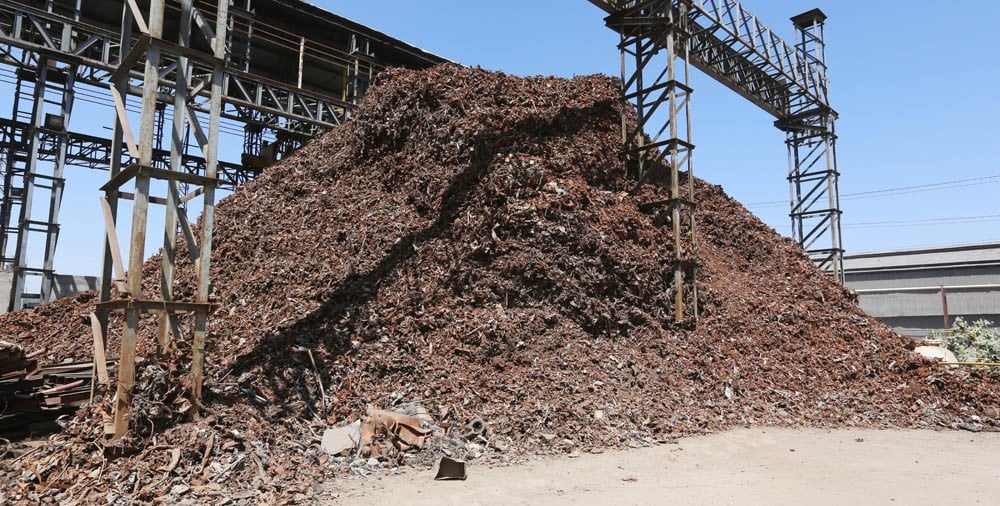
A commission has been set up by the Lahore High Court to look into the growing industrial activity and vehicular emissions on the city roads that go unchecked and add to environment pollution

Punjab’s industrial units have been polluting the environment with continuous gaseous emissions since 2001, to be precise, and they have not paid a single penny to the official exchequers. The Pollution Charge Rules 2001 clearly binds the industries and factories emitting gas, to observe self-monitoring, self-reporting and depositing a calculated amount of fine.
Following a petition moved by Sheraz Zaka, a lawyer, before the Lahore High Court Green Bench against such violations, the LHC has constituted a commission that would look into the issue of non-payment of pollution charges under the Pollution Charge Rules 2001. The terms of reference (ToRs) of the commission would be set by the end of this month, says Zaka who is part of newly formed commission.
The petitioner Zubair Naizi, a former candidate of Punjab Assembly from Lahore and a social activist, moved the petition through Zaka in 2014.
According to a World Health Organization report, Lahore is among the top 10 particulate dust polluted cities in the world, thanks majorly to gaseous emissions such as Sulfur Dioxide, Carbon Monoxide and Nitrogen Oxide. These gases have a harmful effect on the environment which, in turn, results in global warming.
Lahore is highlighted all the more because of the unchecked and unmonitored, ever increasing industrial activity and vehicular emissions the city sees on a daily basis, endangering the environment and contributing to the spread of various types of ailments.
District level Environment Protection office quotes Lahore as having more than 350 steel mills and furnaces, whereas the total number of all types of small and big industries here is in thousands.
Rapidly increasing industrialisation and commercialisation have turned the provincial metropolis -- once known as the City of Gardens -- into one of the most polluted cities in the country. Even its residential localities are not safe, especially those that fall into the industrial zones.
Baghbanpura, Mughalpura, Misri Shah, Daroghawala, Chah Miran, Shadbagh, Feroz Pur Road, GT Road, Band Road, and the suburbs of Lahore are hubs of steel mills and furnace, says the district official. The industry includes steel foundries, steel re-rolling mills, kilns, steel furnaces, marble grinding etc. Much of this industry is operating around the city’s historical monuments.
Zaka believes, "Given such a high rise in the number of industries, the official pollution figures seem like a joke.
"The commercial and industrial enterprises are not fulfilling their corporate social responsibility. Industry is blatantly violating the prescribed rules, and the federal and provincial chambers of commerce are not making an effective use of their office to enforce pollution charge rules."
The said commission, Zaka adds, would be asked to focus on such matters and suggest revising the law if there are no overcharging directions/guidelines and prescribed procedure to take action against industrial violations, as per the Pollution Charge Rules 2001.
A provincial-level official of the Environment Protection Department (EPD) tells TNS, on condition of anonymity that at the time when the pollution charge rules were framed, there were efforts made by the government to revive the Provincial Sustainable Development Fund (PSDF) that would pay for the mitigation of the environmental pollution caused by industry.
According to some estimates, made by different non government organisations working on environment, the amount could rise to Rs140 billion by the year 2025.
"No guidelines were formed for self-monitoring, reporting and depositing the said amount to the national exchequers. That is why industry never bothered to implement the rule," says the EPD official.
"Only 10 to 15 factories, out of more than 63,000 small and big units, are known to comply."
In the beginning, some sections of the industry supported the government initiative but later nothing positive came of it.
The EPD official also says that following the 18th Amendment in the Constitution, the environment department was transferred to provinces and Punjab has failed to activate its Provincial Environmental Quality Standards (PEQS) council since.
Under the Pakistan Environmental Protection Act of 1997, the PSDF was supposed to be funded by fines collected from the polluting industries, with a matching contribution from the government. However, the industries were not fined and the fund never got off the ground. The industries which discharge high levels of heavy metals in effluent were supposed to be charged heavy penalties. But it never happened.
"Such heavy metals end up in the food cycle through groundwater or irrigation water and add to diseases, especially the water-borne ones, among children," the local environment department official says. "The government’s preference has been a voluntary approach and not a strict hand in regulating industrial pollution. We need to understand that we can change many things when they are out of order but we cannot create new air if it is polluted."
The official maintains that in the early days there was some agreement on the guidelines for paying the pollution charge, too. Following the agreement, which was finalised in consultation with the officials of the ministry, the chambers’ representatives and some NGOs, the procedure of self-reporting, formation of an inspection team, evaluation of pollution and payment of charges were defined too.
It was understood that the level of pollution charge would be established through a process of negotiations. And, it was planned that the system should be applied uniformly across all industrial sectors.
"However, these guidelines remain on paper," laments the official. "This means the industry will remain at large, without paying attention to environmental issues."
He says many experts have pointed out a flaw in the rules saying that it would make it easier for the industry to pay money to the government and not take environmental protection measures, which is the case, particularly, in the highly populated province of Punjab.